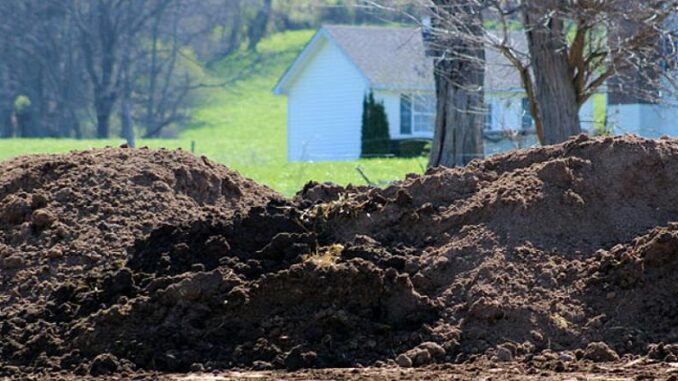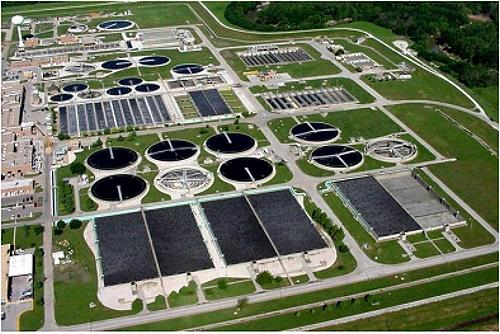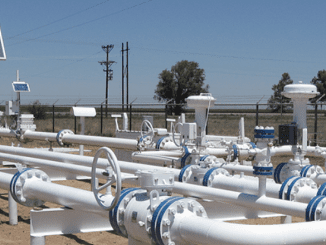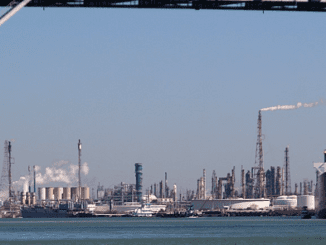
BALTIMORE, Maryland, February 23, 2024 (ENS) – A product liability lawsuit has been filed against a major manufacturer of biosolids-based fertilizer produced from sewage sludge. The lawsuit seeks compensation for damages caused by exposure to the toxic chemicals the fertilizer contains.
Fertilizers produced from sewage sludge contain dangerous levels of toxic per- and polyfluoroalkyl substances (PFAS), found laboratory tests arranged by Public Employees for Environmental Responsibility, PEER, which warns these substances pose a threat to American agriculture and public health.
Five farmers from Johnson County, Texas, filed a lawsuit this week against Synagro Technologies, Inc. and its Texas affiliate. In December 2020, Synagro Technologies was bought by West Street Infrastructure Partners III, an infrastructure investment fund managed by Goldman Sachs Merchant Banking Division.
Johnson County is included in the Dallas–Fort Worth–Arlington metropolitan area, but the Johnson County farmers who brought this case filed it in the Circuit Court for Baltimore County, Maryland, where Synagro is headquartered.
The Texas farmers allege in their lawsuit that Synagro’s biosolids-fertilizer contains high levels of PFAS that poisoned them, killed their livestock, polluted their water, and rendered their property worthless. According to the U.S. Environmental Protection Agency, several of the PFAS found in the biosolids and on the farms are so toxic to humans that there are no safe levels of them.
The lawsuit alleges that the company falsely markets its biosolids fertilizers as safe and organic and failed to warn purchasers of the risks associated with PFAS exposure.
Two farm families in Grandview, Texas complained of horrific smells coming from a neighboring absentee farm property after land application of biosolids from Synagro in December 2022. The families have also experienced the death of 10 cows and a horse, and an alarming concentration of contaminants on their properties, PEER explains.
The concentrations of PFAS in the soil, water, and fish and calf tissue from these farms were high. One chemical in the group of PFAS is perfluorooctane sulfonic acid, PFOS, one of the most extensively produced and studied among the PFAS chemicals. Testing found 610,000 parts per trillion, ppt, of PFOS in a stillborn calf liver, and up to 74,000 ppt of PFOS in fish samples.

Synagro’s biosolid fertilizer was produced from sewage sludge that Synagro purchased from the water treatment plant serving the City of Fort Worth, Texas. Synagro makes some 26,500 tons of fertilizer each year at that location and claims to have 1,000 such contracts with water treatment plants across North America. The company manages 6.5 million tons of biosolids annually.
Synagro defends its actions by saying on its website, “The majority of processed material has beneficial re-use applications, including pelletized fertilizer, compost and renewable energy, supporting both clean public water systems and landfill diversion.”
Kip Cleverley, chief sustainability officer, Synagro, said, “Simply, we take waste that would have been sent to a landfill and transform it into something valuable,” said “The sustainable growth of our company has a meaningful impact to the ever-evolving circular economy.”
“Similar instances of PFAS poisonings of farms, dairies, and ranches have occurred in several states,” said PEER Science Policy Director Kyla Bennett, a scientist and attorney formerly with the U.S. Environmental Protection Agency. She pointed out that Maine has outlawed land application of biosolids after more than 60 farms were found to have unsafe levels of PFAS contamination.
“This lawsuit against Synagro will likely be the first of many,” Bennett predicted.
“Although civil and criminal sanctions at both the state and local levels are available, the PFAS biosolids problem calls for a national solution,” Bennett said, noting that Johnson County, Texas, has also opened a criminal investigation into Synagro over these events. “Unfortunately, EPA has yet to act to protect consumers and farmers from these avoidable toxic exposures.”
The EPA is “neglecting its legal obligation to regulate toxic per- and polyfluoroalkyl substances (PFAS) in biosolid fertilizers,” according to a 60-day notice of intent to sue filed February 22 by Public Employees for Environmental Responsibility, PEER, and the Texas farmers.
Sewage sludge, or biosolids, are treated solids that are separated from the sewage waste created in the United States. Millions of tons of biosolids are used as fertilizer and applied to agricultural lands, home gardens, pastures, parks, and other lands.
PEER warns, “Vast amounts of PFAS-laden fertilizers are applied annually onto agricultural lands where they contaminate farmland, plants, livestock, wild animals, and water supplies.”
Featured image: Smelly biosolids fertilizer made by Synagro by treating human wastewater. undated (Photo courtesy Synagro)



